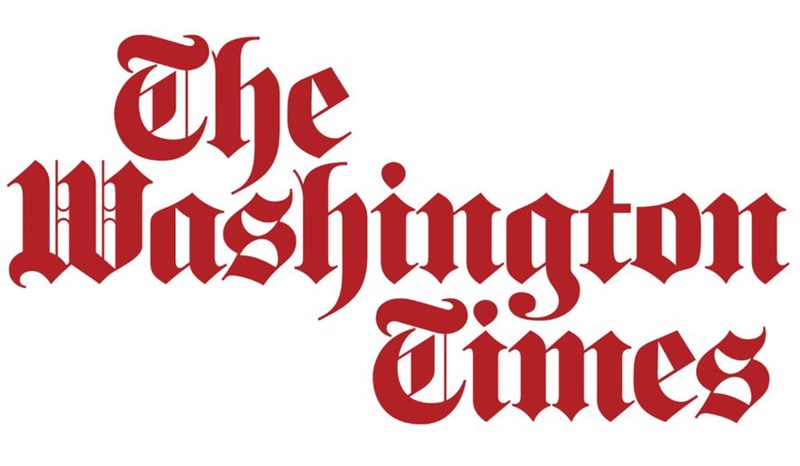


The country is feeling a lot of stress thanks to the coronavirus, and it’s got the National Science Foundation intrigued.
So intrigued, in fact, that it is spending millions of taxpayer dollars on more than 25 studies of how various demographics are handling stress. There’s the study of New York parents handling the pains of being forced into helping homeschool their children, and the study of how “at-risk” people are adjusting to the stress of the virus.
There’s a study of whether access to green space has helped college kids cope when campuses closed and they were sent back home. Which is not to be confused with the $163,033 study of how graduate students are coping with stress. Or the $75,319 study of how undergraduate engineering students are handling stress.
The NSF has doled out more than $75 million in what is known as Rapid Response Research or “RAPID” grant funding over the last couple of months, as it seeks to improve understanding of the pandemic.
Much of the money seems like a good bet. There are projects to test how to extend the life of the N95 masks that can filter out the coronavirus, or to use algorithms to try to figure out which already approved drugs can be repurposed to try to treat COVID-19.
And then there are more experimental ideas such as testing whether drones can be used to apply disinfectant over a large area, or whether smarter ventilation in public buildings can reduce the spread of the virus.
But the NSF is also spending millions of dollars on softer social sciences, such as sociology and cultural anthropology investigations that critics say look a lot like the sort of work journalists publish, free to taxpayers, every day.
Congress, eager to help, allocated an additional $75 million to the agency in the coronavirus stimulus law in March, which has already been spent, and the agency dipped into its regular budget to fund what it considers “urgent” research.
“NSF is specifically supporting fast-track, fundamental, and transformational research activity associated with (i) improving our understanding of SARS-CoV-2, the coronavirus causing COVID-19; (ii) developing a predictive understanding of the spread of the virus; and (iii) enabling approaches that mitigate the negative impacts of COVID-19 on public health, society and the economy,” NSF spokesman Mike England told The Washington Times in an email.
But spending watchdogs said some of the projects stray far from urgent needs, particularly at a time when the federal budget is already stretched to breaking by other coronavirus obligations such as boosting unemployment payments, paying small businesses to keep their doors open and funding food assistance programs.
“The National Science Foundation should focus on the hard sciences during the peak of this pandemic. Instead, the agency is spending tens of millions of taxpayer dollars on soft and superfluous studies that will not impact the lives of regular people in a meaningful way,” said Adam Andrzejewski, CEO and founder of OpenTheBooks.com, which tracks government spending.
His organization flagged projects such as the $200,000 spent on an oral history archive recording New Yorkers’ experiences during the pandemic; a $198,985 study of whether people who search online for coronavirus information in Spanish get different information than those who Google in English; and a $135,825 examination of the psychology of panic-buying.
“In a national emergency, Congress should be directing taxpayer dollars toward the actual problem, not how people feel about the problem,” Mr. Andrzejewski said.
But Mr. England, the NSF spokesman, defended the multitude of studies on matters such as stress levels amid coronavirus, saying they are “consistent” with the agency’s goals, and the pandemic gives them opportunities that “cannot be replicated in a lab.”
“Once the pandemic resolves, these research opportunities will be gone,” he said. “There is overlap in some of these projects because, as with all science and engineering, we do not know for sure in advance which approaches will work, or which ones will lead to solutions that can be implemented. Therefore, we try to cast as wide a net as possible.”
For some of the projects, it’s not clear what the government might be getting back.
One proposal by researchers at Virginia Tech, which was awarded $98,185, says it will use “construal level theory by empirically distinguishing between the spatial and psycho-social dimensions of the construct of psychological distancing and calibrating the psychological impacts of immersion in online environments during a period of limited in-person interactions.”
The proposal continues: “The team investigates how digital media and technology consumption influence construal level and how the interaction of these two factors shape individuals’ risk perceptions, attitudes, and behaviors over time. Our research thus moves beyond simplistic explanations of the direct linkage between psychological distance, construal level, and judgments and decisions to a more nuanced understanding of interactions between construal mindsets and overload, stress, and fear.”
Other projects include:
• Studying two Virginia high schools to see how student-teacher relationships have changed. That is costing taxpayers $150,763.
• Tracking internet traffic patterns to see if stay-at-home orders worked, at a cost of $91,928.
• Examining whether people who are curious about science know more about the pandemic than those who are less curious. That proposal won $91,928.
• Studying how funeral homes have reacted to the crisis, at a cost to taxpayers of $97,509.
• A $197,475 look at how New Yorkers are making use of parks and other open spaces. That project is being led by Timon McPhearson, a professor of urban ecology at the New School.
“The Twitter data collection is only a portion of the research we’re conducting,” he told The Times. “We are also tracking a number of changes to New York City energy use, park use and more in order to document how much social distancing policies are driving behavior changes, and how these behavior changes in turn impact the ecological spaces and infrastructure of New York City.”
Initial results of the work are posted at www.urbansystemslab.com/covid19.
The Times reached out to a number of other researchers who won funding. Most didn’t reply, while several declined to answer questions about their work.
That included researchers at Johns Hopkins University who won $200,000 in taxpayer money for their work updating an online “dashboard” of coronavirus cases, deaths and recoveries worldwide.
That site, which has gotten heavy use from the public, reporters and even official Washington, was up and running well before the NSF awarded its grant. Hopkins researchers declined to say why they needed the additional funds.
There are also a number of coronavirus data collections online that aren’t funded by taxpayers, including several run by media organizations.
That overlap between what news organizations produce for free and what taxpayers fund through the NSF is a frequent complaint for critics of the agency.
Mr. England said they had awarded 400 COVID-related grants as of May 12, all but six of them under the RAPID program, at a cost of $77.4 million.
That’s more than the $75 million in emergency money Congress approved, but Mr. England said they’re able to tap regular NSF funds to help what they see as an “urgent” need.
He said final numbers on how many proposals were accepted versus rejected will come later.
Tom Schatz, president of Citizens Against Government Waste, said the NSF should be trying to save money during coronavirus, not boost spending. He suggested canceling nonessential spending and tightening the standards for new grants.